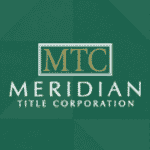No one wants to pay more taxes than they have to, yet everyone wants to maximize the value of their business.
Business owners often put as many expenses on the business as possible in order to minimize “profits” and their associated tax liabilities.
EBITDA, or Earnings Before Interest, Taxes, Depreciation and Amortization, is a measure of a company’s overall financial performance and is used as an alternative to simple earnings or net income in most cases where a merger or acquisition is being contemplated. A multiple of EBITDA is commonly used to value a company.
The problem of course is that the inclination to reduce taxes reduces EBITDA which negatively impacts the valuation of the business.
This inherent conflict is solved by ‘normalizing’ or ‘adjusting’ a business’ P/L. This process involves recategorizing expenses to produce a putative P/L and corresponding EBITDA which can then be used as the basis for the multiple used to value a business.
This ‘process’ involves three primary elements:
- Owner Expenses added back to improve EBITDA
The first and most common category of expenses are related to Owners and what are truly personal rather than business expenses. These items commonly include:
- Owner bonuses or excessive salaries.
- Personal vehicle or IT expenses.
- Family member salaries where the person works nominal hours for the company and associated expenses such as phones and internet services.
- Travel, meals and entertainment for personal uses rather than business.
- One-time Expenses added back to improve EBITDA
The second category of business expenses that can be added back as adjustments to EBITDA are those that are considered extra-ordinary or one-time or non-recurring. These expenses can include:
- Extra-ordinary Severance or Recruiting costs.
- Legal expenses or Lawsuits or settlement payments that were not related to the ordinary course of business.
- Expenses related to acquisitions, transactions or relocations whether successful or not.
For expenses to be legitimately considered one-time they cannot be seen to appear on the company Income Statement every few months or even consistently across several years.
The bottom line is that anything that is added back as owners’ expenses or one-time expenses cannot be expected to be incurred by the new owner to continue the operations of the business. They in effect are eliminated post the transaction with no detriment to the performance of the business.
- Capitalized Expenses
In addition to personal/owner and one-time expenses there are those expenses that could alternatively be capitalized. This category is often not considered by Owners who are less aware or focused upon the nuances of Accounting Treatments for business related expenses such as:
- purchasing equipment
- labor costs associated with installation of capital assets
In simple terms, a capitalized cost is recognized as part of a fixed asset, when an item is expected to be used over a long period of time. Capitalization recognizes expenses at the same time the business recognizes the revenues that those expenses helped to generate. If you purchase equipment that will last for 5 years, it should be used over the same period to generate revenues. Therefore, rather than incur a single expense in the year it was purchased the company will depreciate the cost of over the same 5-year period.
It is easiest to see the effects of adding back Owners and One-time expenses. EBITDA is increased by an equal amount.
The effect of Capitalizing expenses is similar in that the expense line item is eliminated but there are additional effects and benefits. Capitalizing an expense adds assets to the Balance Sheet providing potential additional added value to a Company in a sale. The impact on the Income Statement is seen as Depreciation but this is a non-cash expense that is below the calculation of EBITDA.
The bottom line in all this is that efforts to minimize taxes do not necessarily conflict with the value of your business when you engage professionals to advise you. The professionals at Turk & Company have decades of experience in helping business owners evaluate these and other aspects of the sale process. When we work with a client, we seek true alignment and tailor the sale process to meet the unique goals of each specific seller.




















 For More information
For More information